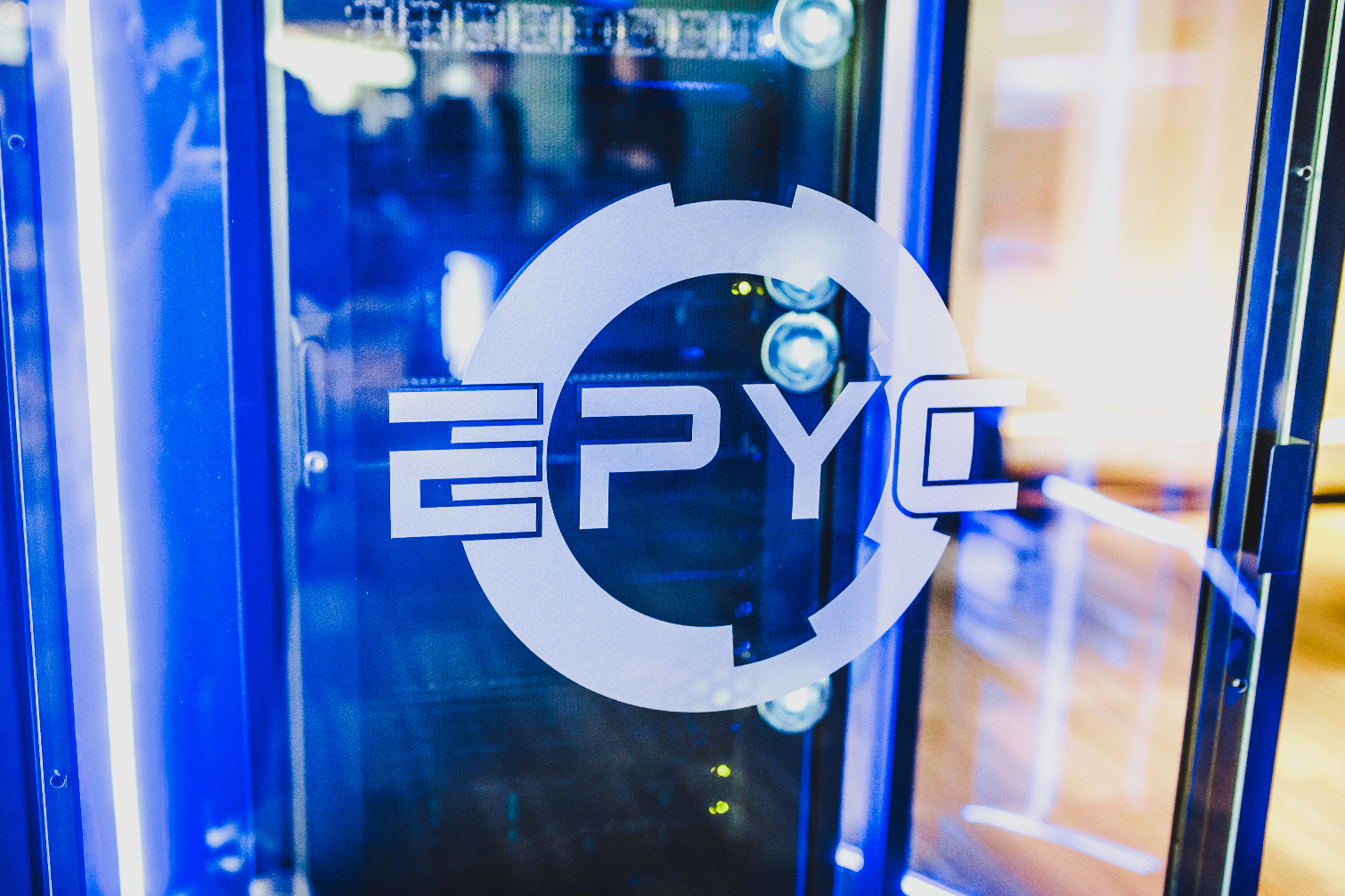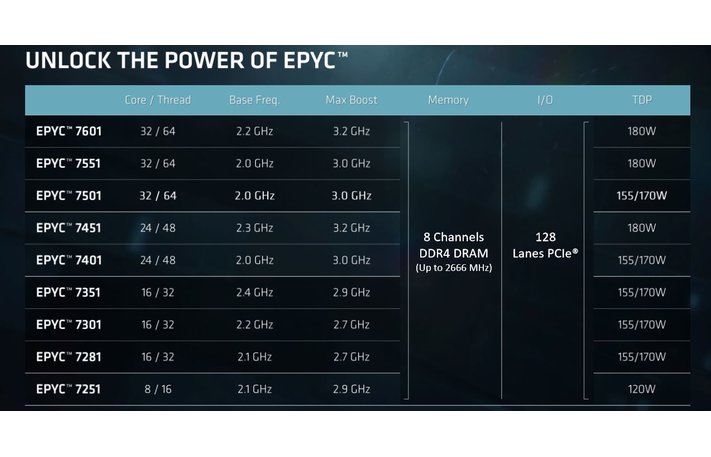AMD Announces High-Frequency EPYC 7371 Processor
AMD made several announcements here at Supercomputing 2018, including a new EPYC 7371 processor designed for workloads that prize high frequencies, like the aptly-named high-frequency trading. The new processor is built on AMD's existing 14nm Zen architecture, so it doesn't feature the same 7nm DNA as the forthcoming Rome processors. In either case, the revamped processor shows that AMD can target specific use-cases, like HPC and design automation, by tweaking its existing design.
The EPYC 7371 has 16 cores and 32 threads that operate at a 3.1 GHz base frequency but boost up to 3.6 GHz when a workload spreads among all 16 cores. For lighter workloads, the processor jumps to 3.8GHz across eight cores. Those clocks equate to a 700 MHz upgrade over the equivalent 16C/32T EPYC 7351 processor.
As with any processor that features higher frequencies, we expect a commiserate increase in power consumption and thermal generation. AMD's current 7351 comes with a 170W TDP, but we expect the new optimized processor will come with a higher TDP rating.
The chip does not come with a "P" modifier, meaning that it will work in standard dual-socket servers. AMD hasn't shared pricing, but the EPYC 7371 will be available in Q1 2019.
Get Tom's Hardware's best news and in-depth reviews, straight to your inbox.

Paul Alcorn is the Editor-in-Chief for Tom's Hardware US. He also writes news and reviews on CPUs, storage, and enterprise hardware.
-
shrapnel_indie Replybut the EPYC 7371 will be available in Q1 2018.
That quarter is now history, and has been for a half a year. Are you sure you didn't mean Q1 2019 instead, iow, next quarter? -
rs.anantmishra The new processor is built on AMD's existing 14nm Zen architecture.Reply
Should it be 12nm Zen+? -
Paul Alcorn Reply21482891 said:The new processor is built on AMD's existing 14nm Zen architecture.
Should it be 12nm Zen+?
AMD's client processors are on a different node. EPYC is on 14nm.

